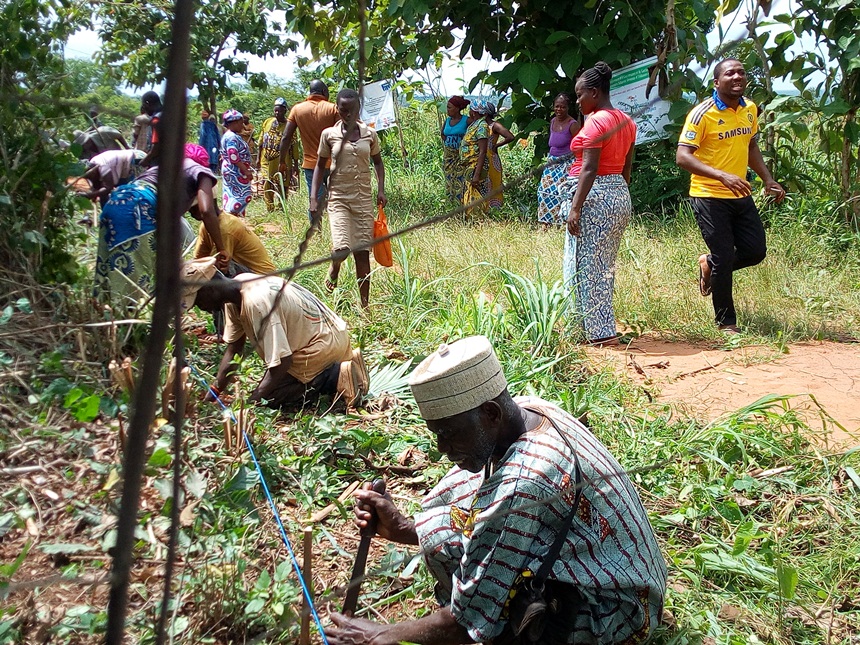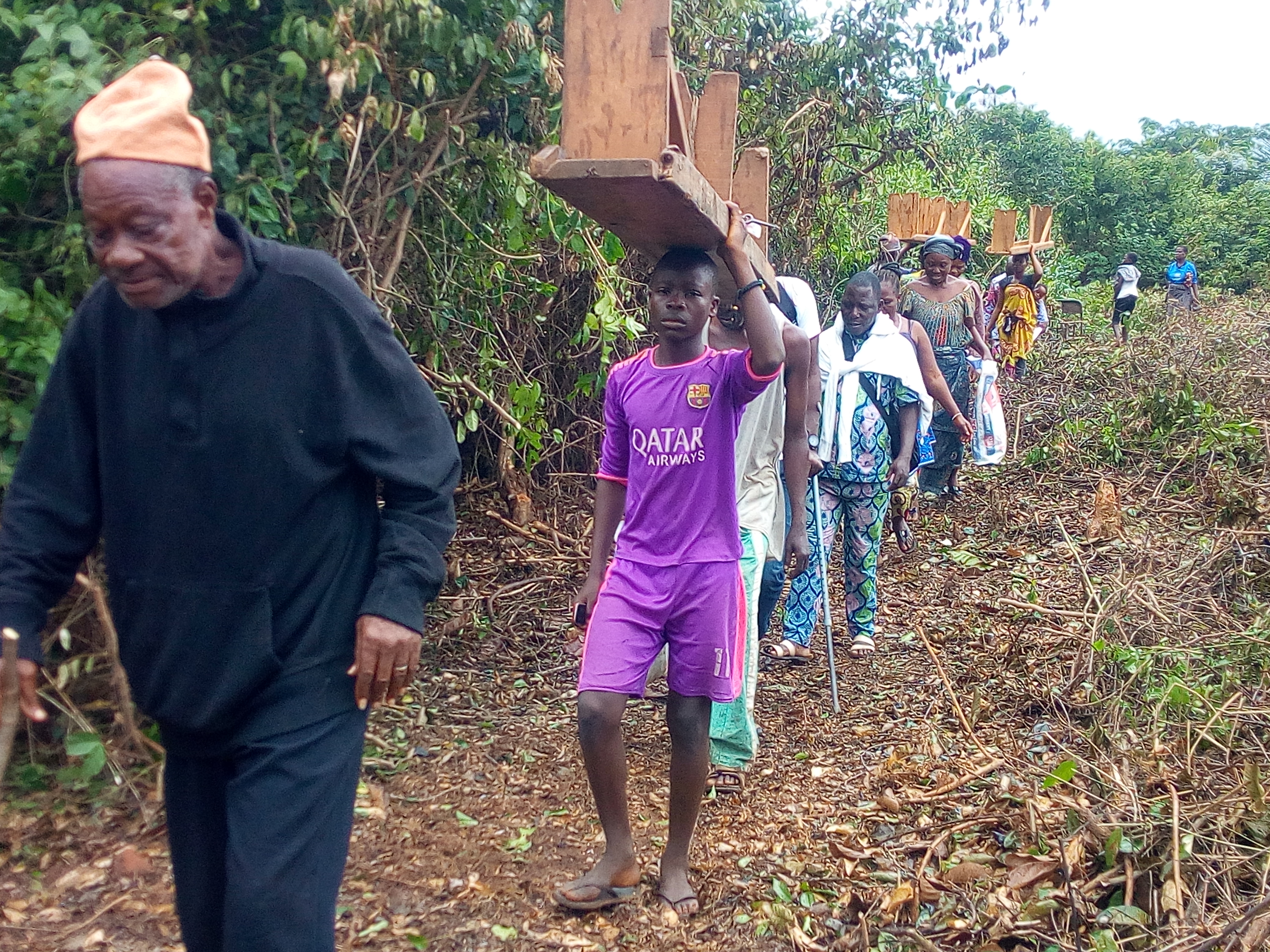Têdozoun, Bénin
Description
Têdozoun is an ICCA in Benin which abounds in rich biological diversity. 52 species of flora distributed in 31 families form this dense, semi-deciduous humid forest. The Avian fauna in Têdozoun is rich, with 29 species belonging to 17 families.
The indigenous community living in this ICCA, the Alladahonou, comprises more than 135 households and over 250 people. This community has mobile livelihoods and moves between settlements on a seasonal basis. Local communities are extremely concerned with the ecosystems of Têdozoun and depend on them for cultural and sacred sites, as well as for subsistence reasons.
Têdozoun is recognised by civil society law but is not yet recognised by national law.

History and Activities
Têdozoun has the objective of maintaining and enhancing natural resources, conserving biodiversity, improving land ownership security and sharing the riches of the forest with future generations. The Alladahonou would like to preserve their culture and traditions, as well as to protect sacred sites within the ICCA.
Conservation
Biodiversity decline is one of the greatest threats to Têdozoun. Human pressures, development and climate change further endanger the ICCA’s ecological integrity. Inappropriate management and conflict with other communities present further challenges for Têdozoun.
Governance and Management
The Têdozoun ICCA is owned by the Alladahonou community, and is governed by a council of indigenous pleas and by a local community government council, set up with the support of the NGO AMAF-BENIN. A place in these councils is inherited. In addition to carrying out the decision-making of the ICCA, local communities are the main actors in implementing decisions concerning the management of the ICCA’s ecosystems. That said, they have an institution that exercises authority and responsibility and that is capable of enforcing regulations. The local community management decisions and efforts contribute to the conservation of habitats, species, ecological functions and associated cultural values.

Next Steps
Têdozoun would welcome a range of support, particularly with respect to capacity building. The Alladahonou community are in need of capacity strengthening to protect the ICCA, as well as greater information, exchange and communication. They are also seeking support for forest restoration and for ecotourism development.
This case study was originally published by UNEP-WCMC in April 2020. The content was provided by the custodians of this ICCA. The ICCA has been self-declared and has been through a peer-review process to verify its status. More details on this process can be found here. The contents of this website do not necessarily reflect the views or policies of UN Environment Programme or WCMC